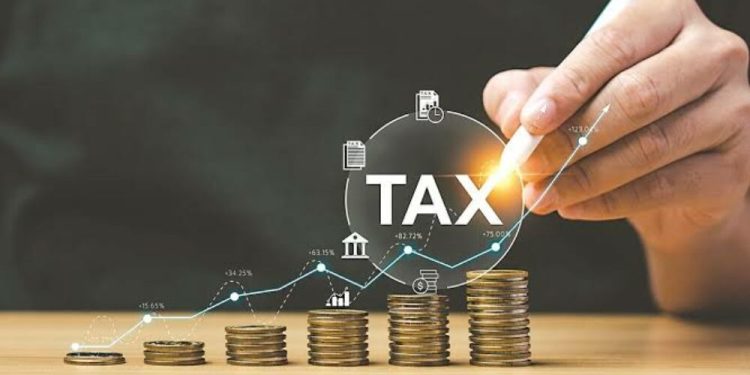Jakarta, Indonesia Sentinel — Indonesia is set to raise its Value Added Tax (VAT) rate to 12% on January 1, 2025. This marks a critical step in the government’s effort to boost tax revenue and align with global standards. However, the increase raises questions about its impact on the country’s tax-to-GDP ratio, a key indicator of fiscal health.
What’s Changing in VAT Policy?
The new VAT rate targets luxury goods and premium food items, such as wagyu beef, Kobe beef, salmon, and king crab. Finance Minister Sri Mulyani Indrawati emphasized that the hike reflects principles of equity and shared responsibility, targeting affluent consumers who benefit from such products. Meanwhile, essential items such as rice, meat, eggs, and educational or health-related services will remain exempt. Goods like flour and cooking oil will retain the current 11% VAT rate.
Despite these changes, Indonesia’s tax revenue remains insufficient. The country’s tax-to-GDP ratio, currently at 10.4%, lags behind the World Bank’s recommended minimum of 15%. This low ratio reflects systemic inefficiencies in tax collection and enforcement. For comparison, developed countries in the OECD average a tax-to-GDP ratio of 34.1%, while emerging markets like Brazil and South Africa report significantly higher deltas between VAT rates and tax revenue.
Tax-to-GDP Ratio: Why It Matters
Indonesia’s tax-to-GDP ratio is a critical measure of how effectively the government collects taxes relative to economic activity. A ratio above 15% is considered essential for sustainable economic development, enabling investments in healthcare, education, and infrastructure. However, Indonesia’s ratio has consistently fallen short. According to Deputy Finance Minister Suahasil Nazara, the country’s potential tax ratio could reach 12.2% if not for tax expenditure policies aimed at supporting the economy.
Historical data from Suryani Suyanto & Associates reveals a troubling trend: Indonesia’s tax ratio dropped to 8.33% in 2020 and only marginally improved to 10.38% by 2022. The pandemic’s economic disruptions exacerbated this decline, and recovery remains slow despite efforts to improve tax collection efficiency.
C-Efficiency and VAT Challenges
A key issue lies in Indonesia’s VAT C-efficiency, which measures the actual VAT revenue collected compared to potential revenue if the standard rate were uniformly applied. Indonesia’s C-efficiency has been declining since 2018, reaching a low of 44.5% during the pandemic in 2020. By contrast, neighboring countries like the Philippines and Malaysia achieve significantly higher efficiency rates. The inefficiency stems from complex exemptions and reduced rates, which create loopholes and administrative burdens.
Corporate Tax Collection Gaps
Another significant challenge is corporate income tax (CIT) collection. Between 2016 and 2021, Indonesia’s CIT revenue averaged just 42% of its potential, despite comparable tax rates within the region. Factors contributing to this shortfall include reduced rates for small businesses and public companies, as well as widespread noncompliance. For example, companies that do not engage in exports often evade taxes, exploiting gaps in government oversight.
Complex regulations further discourage compliance. Businesses frequently cite tax administration as a barrier to operations, underscoring the need for systemic reforms to simplify processes and enhance transparency.
Indonesia VAT Comparative Insights from Global Benchmarks
Emerging economies like Brazil and South Africa provide valuable lessons for Indonesia. These countries maintain positive deltas between VAT rates and tax revenue, demonstrating effective collection mechanisms. Brazil’s delta stands at 7.67%, while South Africa achieves 6.4%. By contrast, Indonesia’s negative delta of -0.6% highlights persistent inefficiencies.
The World Bank’s “Funding Indonesia’s Vision 2045” report identifies significant untapped tax potential, with Indonesia collecting 6 percentage points less revenue than peer nations. Closing this gap could generate substantial resources for development and improve Indonesia’s investment climate by reducing reliance on external borrowing.
Indonesia to Implement 12% VAT on Luxury Goods and Services, Here is The List
Policy Implications and Future Outlook
Indonesia’s VAT hike aims to balance revenue generation with equity, focusing on luxury goods while safeguarding basic necessities. However, achieving a sustainable tax ratio requires broader reforms. Simplifying tax codes, enhancing enforcement, and leveraging digital tools for transparency could boost compliance and efficiency.
Additionally, public awareness campaigns highlighting the societal benefits of tax contributions may improve voluntary compliance. Reducing tax expenditures—such as preferential rates for small businesses—and addressing structural inefficiencies will also be critical.
While the 12% VAT rate is a step in the right direction, it alone cannot resolve Indonesia’s fiscal challenges. To achieve its Vision 2045 goals, the government must adopt a comprehensive strategy that addresses both revenue generation and economic equity.
(Becky)


























